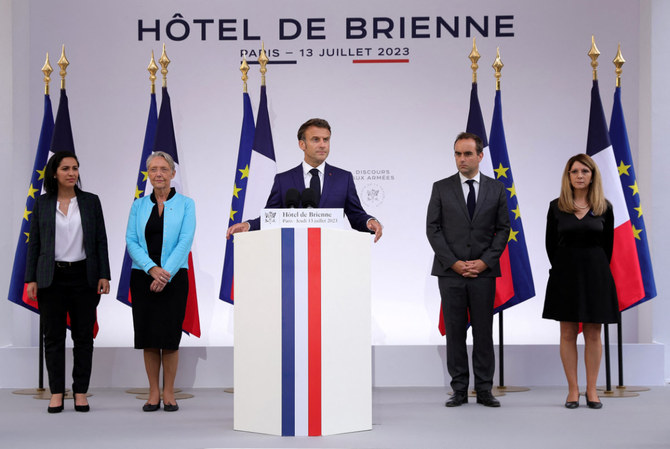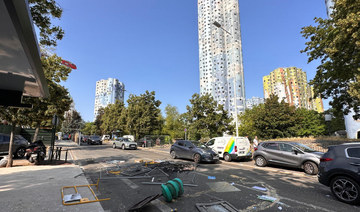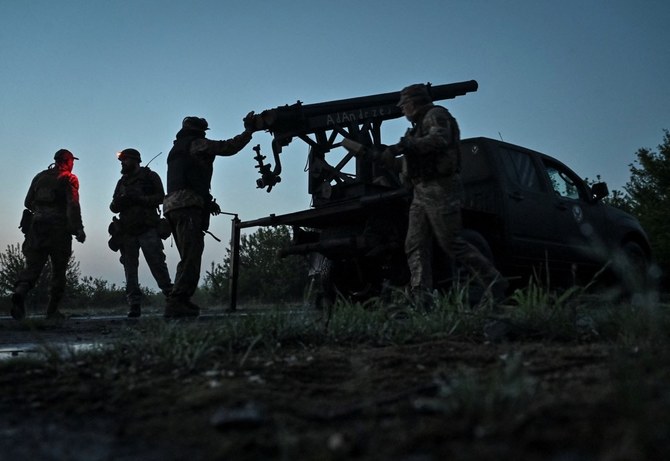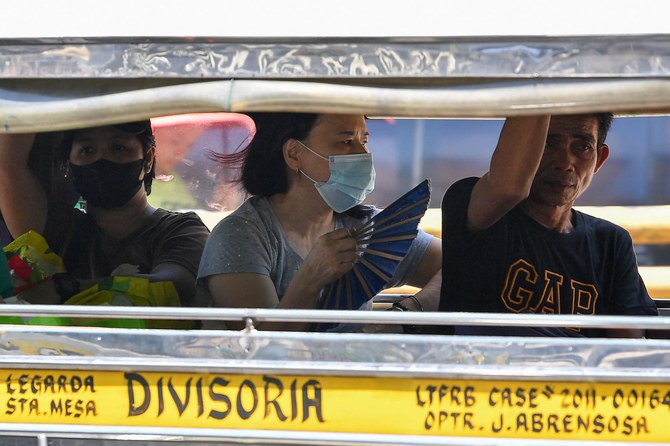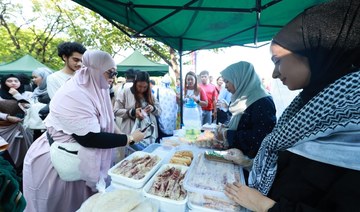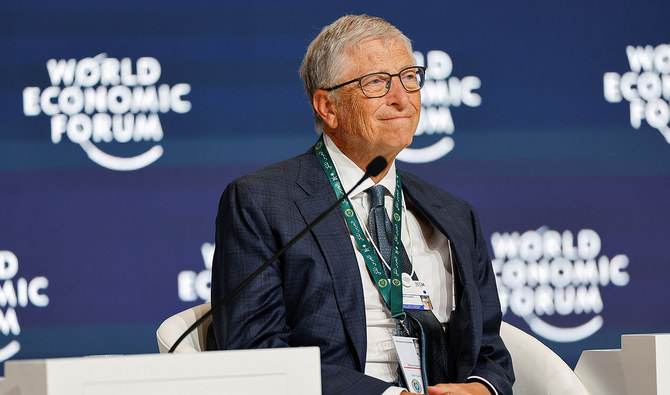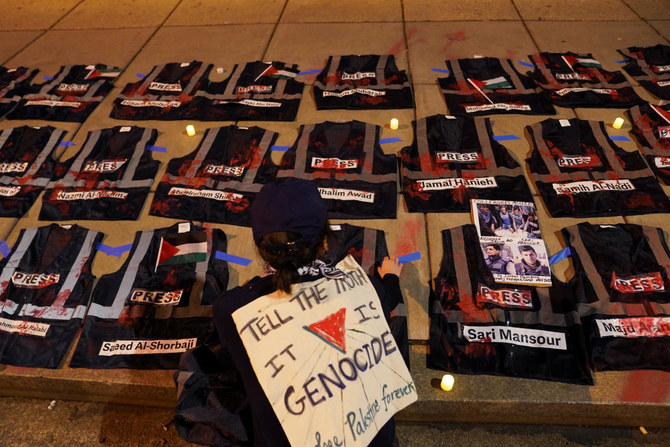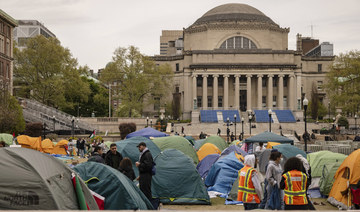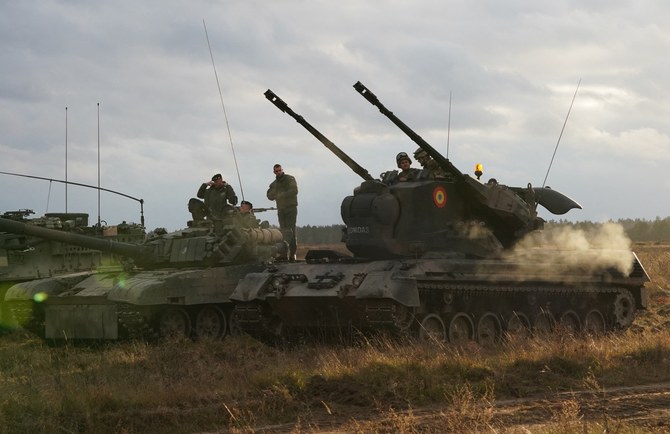PARIS: Will French citizens, shaken by several days of urban violence following the death of Nahel Merzouk, a 17-year-old young man killed by a police officer at a traffic stop in Nanterre, be able to celebrate July 14 with a spirit of national cohesion?
Like every year, the festivities planned for this occasion will take place on July 13 and 14. There will be a military parade on the Champs-Elysees in the presence of the president of the republic, and this year, Indian Prime Minister Narendra Modi will be the guest of honor. There will also be balls, a grand classical music concert that will bring together hundreds of thousands of people on the Champ-de-Mars, and fireworks.

French President Emmanuel Macron and Indian Prime Minister Narendra Modi pose for a picture before a working dinner at the Elysee Palace in Paris on July 13, 2023 . (AP)
After several days of riots, the national holiday will be celebrated this time in a particularly tense social context. Within the French government, there is concern that it may be disrupted by calls to protest on social media or by outbreaks of violence in the suburbs.
During a press briefing on July 12, Gerald Darmanin, minister of the interior, announced exceptional measures to ensure the security of the celebration, including the mobilization of 130,000 police officers and gendarmes equipped with armored vehicles, helicopters and drones, as well as the suspension of public transportation from 10 p.m.

Death of Nahel Merzouk, 17, on June 27 sparked riots across France. (AFP)
Asked about the opportunity to use this national holiday as an occasion to establish a form of social cohesion, William Leday, a historian and professor of international relations at Sciences Po Aix, said: “A national holiday is a unique moment that invokes the history and founding myths of a nation. It is supposed to be a moment of harmony, during which the head of state has the opportunity to deliver strong messages to the country.
“Given the current context of urban violence following Nahel’s death, July 14 would be a suitable time to calm minds and announce strong measures aimed at categories of French citizens who no longer feel part of the national narrative, which the president has not done so far. His statements have focused on the supposed responsibility of parents and social media, disregarding the social question and discrimination, which are at the heart of the current unrest.”
Do the recent riots indicate a fracture within French society, or do they reflect an endemic problem related to immigration? Leday put it this way: “Migrations are structural factors that affect contemporary societies; they are expected to increase. Building physical, bureaucratic, or digital walls does not change that and contributes to the invisibility of people who often had no choice but to leave their countries of origin due to conflicts, climate disasters, or endemic underdevelopment.”

William Leday, a historian and professor of international relations at Sciences Po Aix. (Supplied)
He continued: “Migrations, whether Italian, Polish, Spanish at first, and then postcolonial migrations from African countries, have enriched a society that has become multicultural. Many politicians may lament the multicultural nature of French society, but it remains a tangible and established fact from a sociological perspective.”
Leday added that “a significant portion of the population whose presence in the country is now longstanding (second or even third generation), who are French by birth, do not feel part of the nation due to their skin color, religion, and the invisibility they experience in the media and political representation.
“Beyond the social question, which remains unresolved for many French men and women, this means that the national narrative is incomplete and no longer manages to take into account a significant portion of citizens who only ask to participate.”
Fatma Bouvet de la Maisonneuve, a psychiatrist, former member of the Economic, Social, and Environmental Council and author of the book “Une Arabe en France, une vie au-dela des prejuges” (“An Arab in France: A Life Beyond Prejudice”), asserts that “social and educational inequalities lead to extreme suffering or delinquency.”

Fatma Bouvet de la Maisonneuve, author of the book “Une Arabe en France, une vie au-delà des préjugés.” (Supplied)
To address this, she advocates for the implementation of a long-term policy focused on national unity. “To respond to inequalities, we have no other answer than national unity,” she said, noting that after “the tragedy of Nahel’s death and those of other ignored deaths, the population of immigrant origin feels wounded … Taking to the streets to express anger is a political act.”
She regrets that the chosen response has been repression and a tightening of the law.




